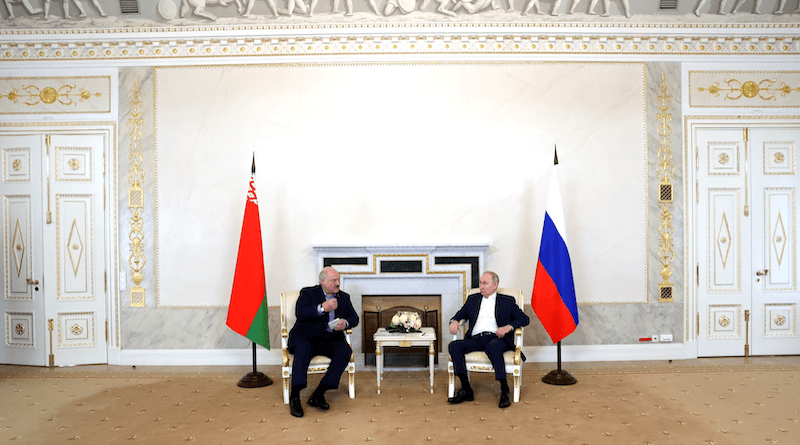Moscow Expanding Contacts Between Russian Regions And Belarusian Ones – OpEd
By Paul Goble
Moscow has stepped up its effort to expand contacts between regions in the Russian Federation and regions in Belarus, in support of closer integration of the two countries in their union state (rubaltic.ru/article/ekonomika-i-biznes/20240427-sotrudnichestvo-rossiyskikh-i-belorusskikh-regionov-obretaet-strategicheskiy-kharakter/).
Using border regions to promote larger policy goals has been a long-standing Russian and before that Soviet strategy (windowoneurasia2.blogspot.com/2020/09/russian-governors-playing-increasing.html, windowoneurasia2.blogspot.com/2019/12/cross-border-trade-means-for-russia-to.html and windowoneurasia2.blogspot.com/2019/06/moscow-expanding-its-influence-in.html).
But the situation with regard to such regional cooperation in the Russian-Belarusian case now inevitably raises questions about Moscow’s intentions — especially in the wake of Putin’s war in Ukraine, one that the Kremlin invoked as a casus belli earlier transfers of what it claims as Russian territories, including Crimea and the Donbass, to Ukraine.
That is all the more so because as one Moscow writer has pointed out, “the most significant land gift from the RSRSR under Stalin” to another republic did not involve transfer of control from Russia to Ukraine but from Russia to Belarus (russian7.ru/post/kakie-territorii-stalin-prisoedinil/).
Between 1924 and 1926, the Soviet government transferred from the RSFSR to Belarus, almost all of Vitebsk, Mogilyev and Gomel oblasts, moves that increased the size of the Belarusian SSR by three times (windowoneurasia2.blogspot.com/2018/07/stalin-frequently-modified-russias.html).
The Kremlin is still pursuing the unity of all of Belarus with the Russian Federation; but by increasing contacts between Russian border regions and the eastern third of its western neighbor, it is clearly sending a message to Minsk that Moscow could pursue a Donbass-like strategy against Belarus if Minsk doesn’t agree to integration on Russian terms.
Indeed, it is at least possible that Putin might make Belarus its next target if there is any sign of rapprochement between Minsk and the West.

